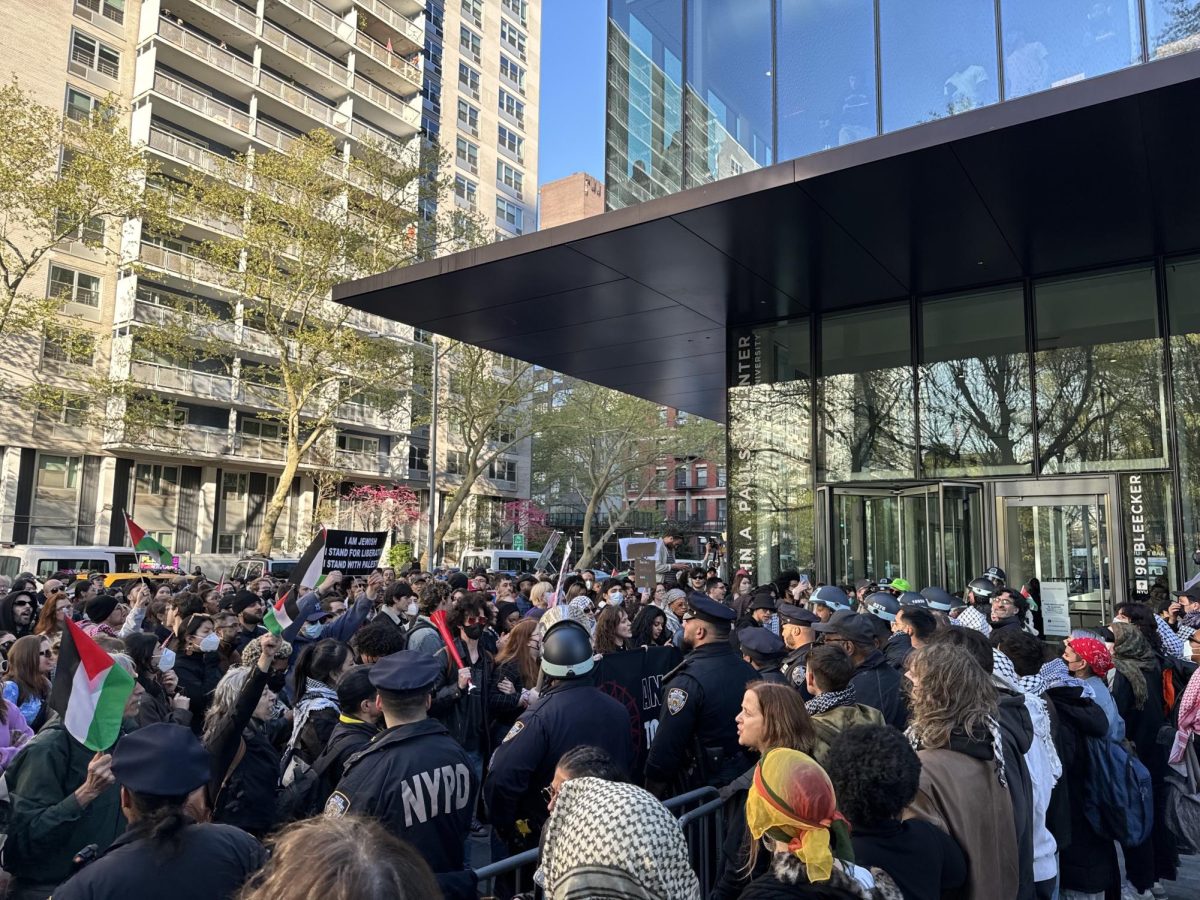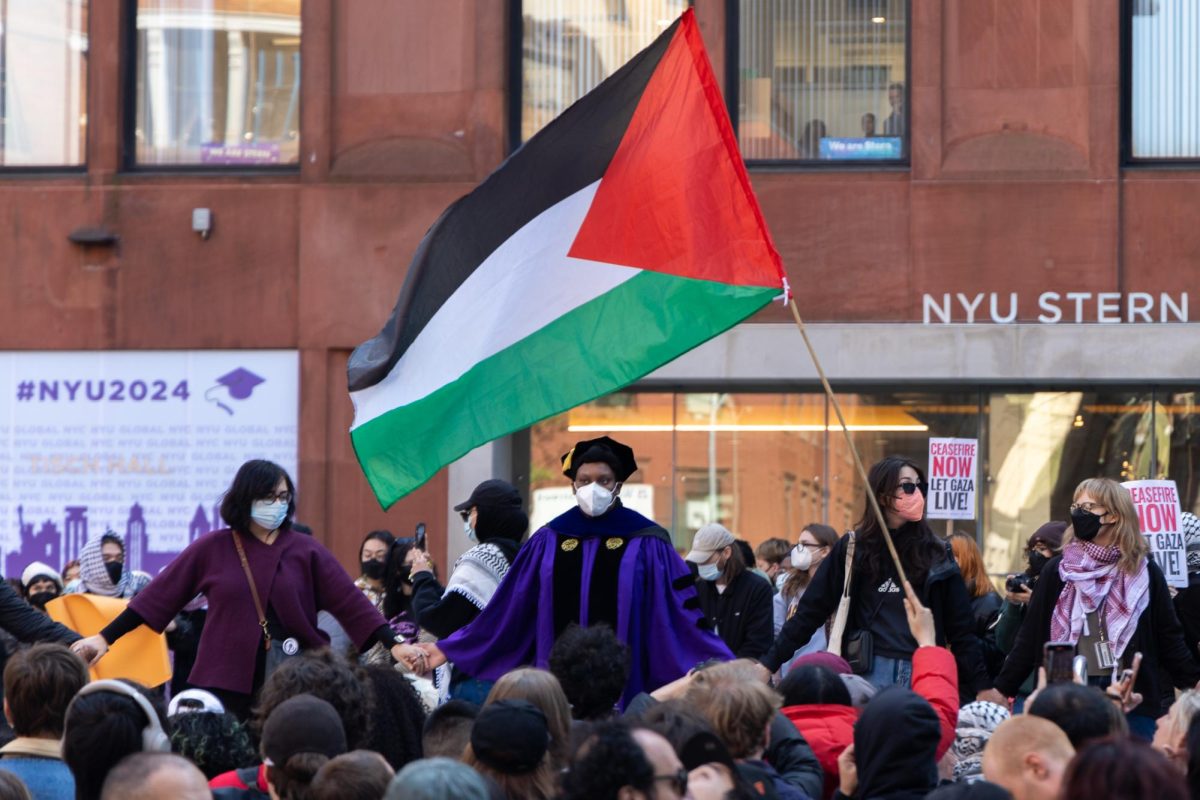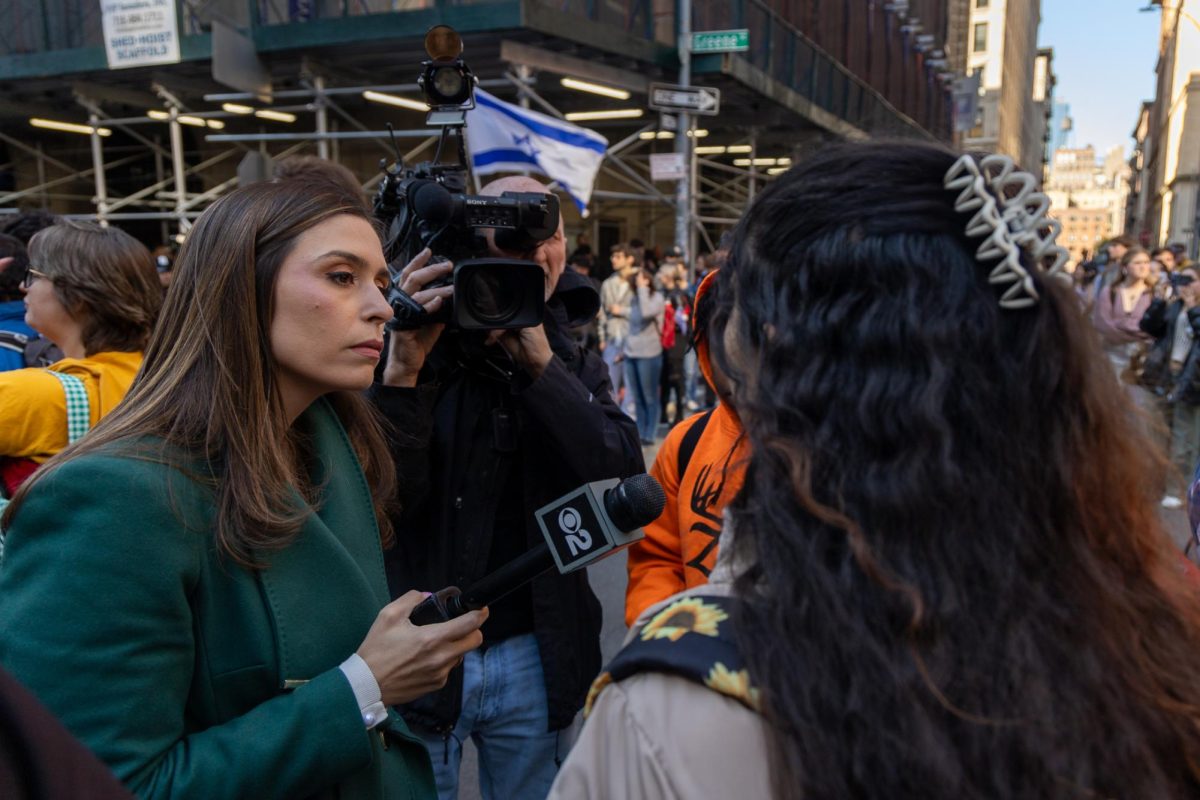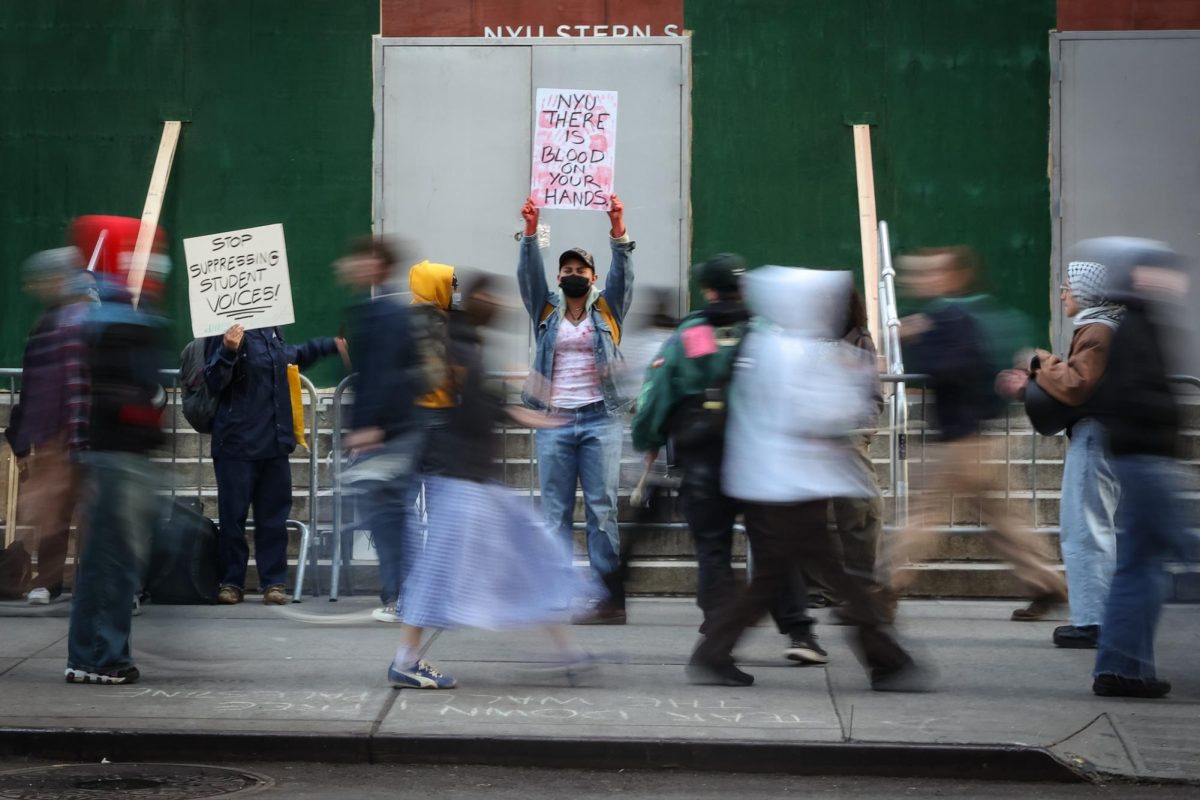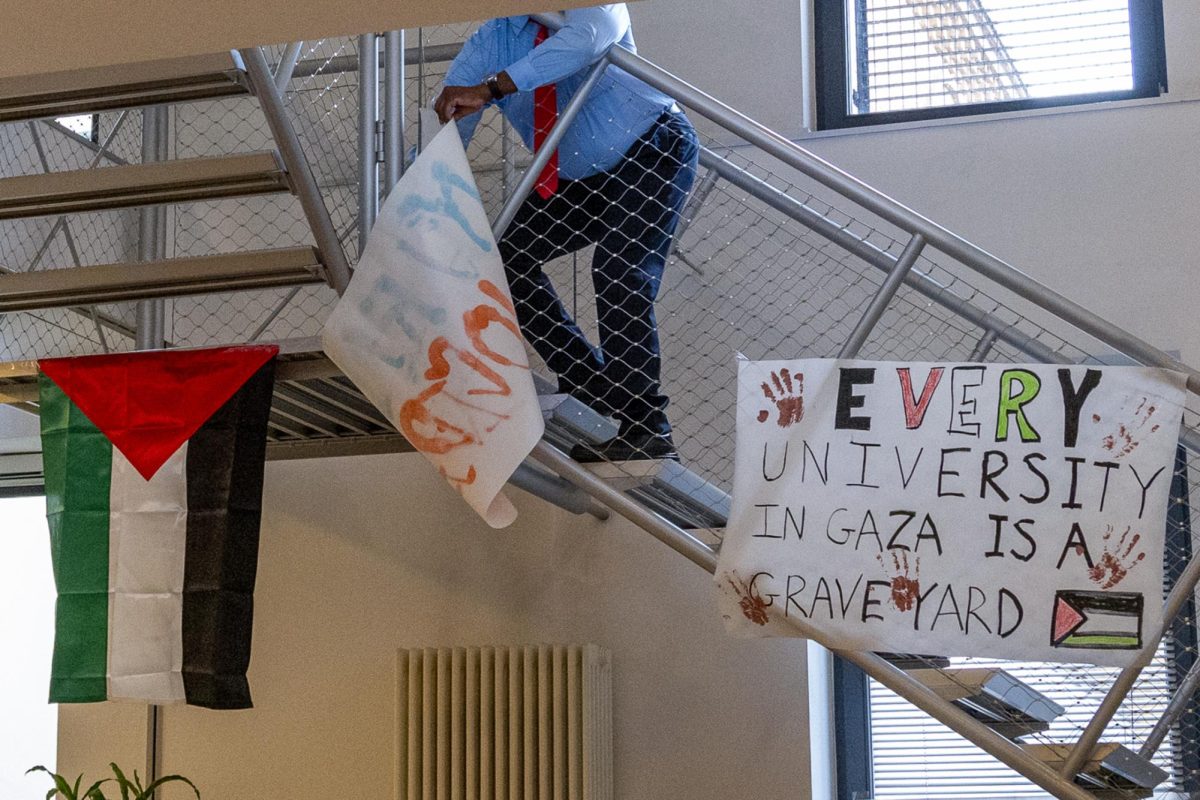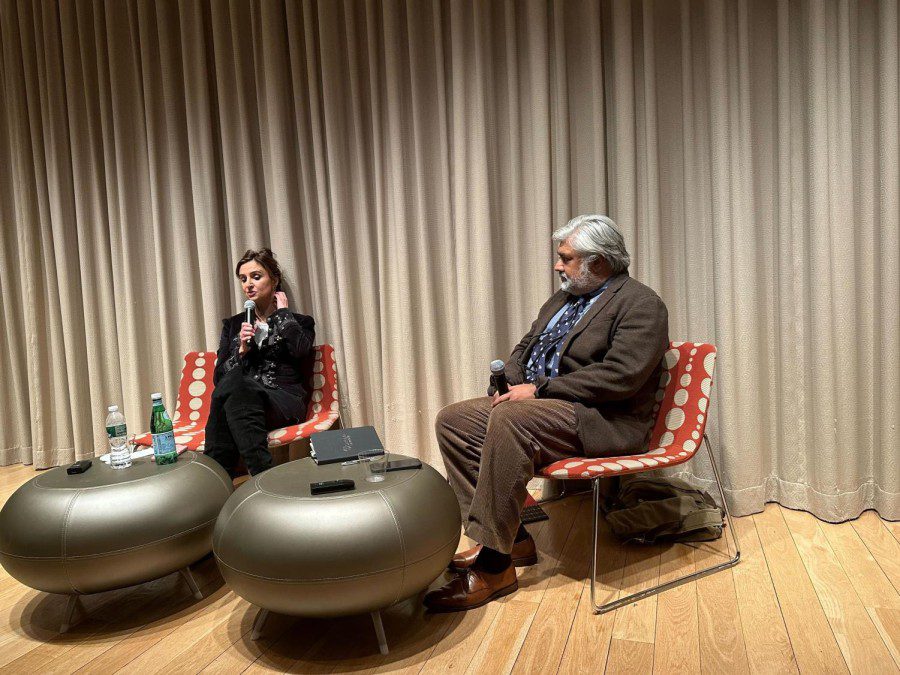Iranian American writer speaks on Iran human rights movement
Roya Hakakian, an Iranian American writer, spoke about the current political climate of Iran during a conversation held at the NYU Abu Dhabi New York City headquarters on Wednesday, Dec. 7.
Roya Hakakian speaks at the NYU Abu Dhabi headquarters in New York City. (Yezen Saadah for WSN)
December 8, 2022
Roya Hakakian — an Iranian American writer and senior fellow for the online magazine American Purpose — spoke in conversation with NYU Law fellow Tunku Varadarajan about the current political climate in Iran and its impact on the future of global democracy. She was invited to talk at the event, held at NYU Abu Dhabi’s New York office, on Wednesday, Dec. 7.
“The regime has arrested over 16,000 people, has killed some 500 people and has not spared any violence,” Hakakian said. “ In fact, yesterday and today, there has been a massive strike throughout the country by merchants, bazaars and shopkeepers.”
Hakakian and Varadarajan discussed the recent suspension of Iran’s Guidance Patrol, also known as the morality police, announced last week by Mohammad Montezeri, the country’s newly appointed attorney general. She criticized Iran’s announcement of disbanding the morality police, arguing that it was a strategy used by the government to gain approval from Western countries such as the United States, and to keep outside parties from interfering with internal political disputes and demonstrations. The government is trying to prevent a revolution by enacting Band-Aid reforms, she said.
“We want to change the system and that’s the resistance that all of us keep hearing,” Hakakian said. “I get the sense that Americans want this, in fact, to be a reform, whereas it isn’t. It is a revolution, and part of what our administration here in this country is struggling with is that they’re not ready for a revolution.”
Hakakian emphasized the significance of the death of Mahsa Amini — the 22-year-old woman who died in custody of the morality police, sparking global protests. The writer related Amini to Emmett Till, a Black 14-year-old who was brutally lynched in 1955, arguing that both have set an example for future generations by standing up for what is right, both sparking human rights movements.
“When we think about movements, we always think about leaders, but movements also need to have exemplary victims,” Hakakian said. “Victims that in some ways can become the face of every citizen and that people on the streets can singularly identify with, and think, ‘That could have been me. That could have been my sister, my mother, my daughter, my wife.’ [Amini], in some ways, was that.”
Contact Yezen Saadah at [email protected].

